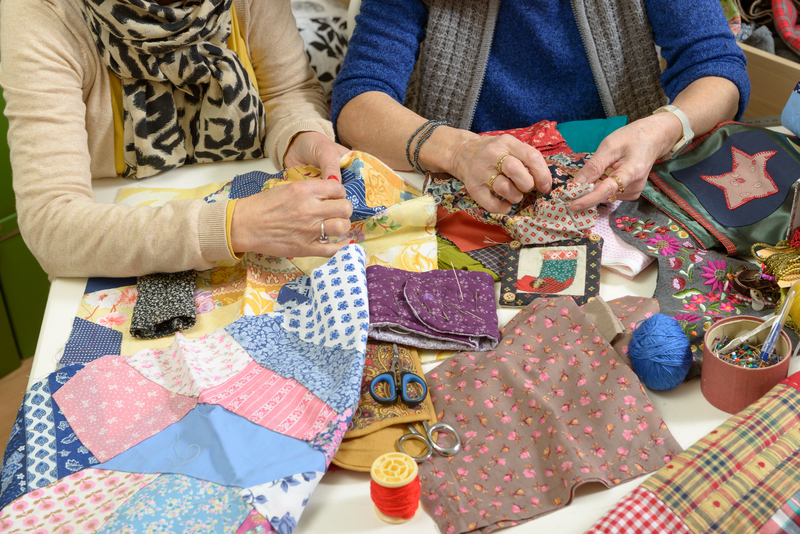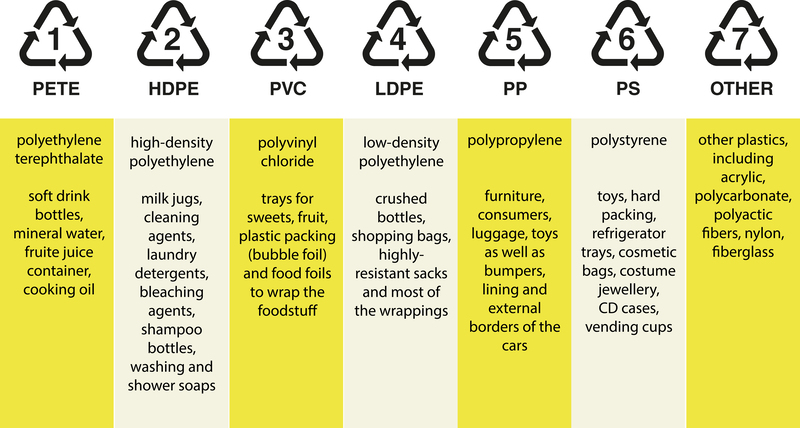Become a Recycling Pro with These Simple Home Tips
Recycling is more than just tossing a few items in a blue bin. In today's world, learning to recycle effectively at home can dramatically reduce your environmental impact, save resources, and contribute to a cleaner planet. Whether you're a beginner or looking to take your skills to the next level, this comprehensive guide will help you master home recycling with actionable steps, creative ideas, and expert insights.
Why Recycling At Home Matters
Home recycling is a simple, practical solution to one of our most pressing environmental challenges: managing the ever-increasing stream of household waste. Here's why it's crucial to get it right:
- Reduces landfill waste: Proper recycling diverts materials like plastic, metal, paper, and glass from landfills, giving them a new life.
- Conserves natural resources: Recycling lowers the demand for virgin resources, preserving natural habitats and ecosystems.
- Decreases pollution: Less waste means fewer greenhouse gases and pollutants enter our air, water, and soil.
- Promotes a circular economy: Recycling helps materials stay in use longer, supporting sustainable production cycles.
Common Home Recycling Challenges
Despite its benefits, recycling can be confusing. Many people struggle with contamination, unclear rules, and lack of motivation. Let's tackle these challenges head-on by making home recycling easy, efficient, and rewarding.

Setting Up an Efficient Home Recycling Station
Step 1: Designate Separate Bins
Start by choosing the right number of bins for your space, ideally:
- Paper and cardboard
- Plastics (#1 and #2 are most commonly accepted)
- Metals (aluminum and steel cans)
- Glass (if accepted in your area)
Pro Tip: Use clear labels and color codes to help everyone in your household sort correctly. This reduces contamination, making your recyclables more valuable.
Step 2: Choose the Right Spot
Keep your recycling center convenient and accessible. Place it near your kitchen (where most packaging waste is generated) or garage. Stackable bins or containers that fit under counters maximize space.
Step 3: Rinse and Prep Materials
Dirty recyclables can ruin an entire batch! Rinse cans, jars, and bottles to remove food residue. Flatten cardboard and crush cans if your program requires it. This saves space and keeps your bin tidy.
Mastering the Recycling Rules
Know What's Acceptable (And What's Not)
Recycling guidelines vary by location. Always double-check your local municipality's website for specifics. In general, here's what goes in most curbside programs:
- PAPER: Newspapers, magazines, office paper, cardboard (flattened), mail.
- PLASTIC: Bottles, jugs (#1 and #2 plastics). Check for the recycling triangle symbols.
- METAL: Aluminum cans, tin cans, clean foil.
- GLASS: Bottles and jars (clear, green, brown). Never window glass or ceramics.
Items to Avoid:
- Plastic bags and films (take to store drop-off points)
- Padded mailers, coffee cups, waxed cartons
- Greasy or food-stained paper (like pizza boxes)
- Hazardous waste (batteries, electronics, chemicals)
Contamination: The #1 Recycling Sin
If you put the wrong items in your recycling bin, or recyclables are dirty, an entire truckload can become unusable. When in doubt, throw it out to avoid contamination.
Creative Ways to Reduce, Reuse, and Recycle at Home
Cut Waste at the Source
Becoming a recycling pro doesn't stop at the blue bin. Reducing your waste footprint is just as important. Here are smart ways to generate less recyclables in the first place:
- Opt for reusable: Choose bags, containers, and bottles you can wash and use again.
- Buy in bulk: Reduces packaging waste, especially single-serve plastics.
- Purchase recycled products: Support the market for post-consumer materials.
- Avoid over-packaged goods: Select products with minimal or recyclable packaging.
Upcycling and DIY Projects
Before you toss something in the recycling bin, ask if you can repurpose it:
- Turn glass jars into storage containers or flower vases.
- Use toilet paper rolls for cable organizers or craft projects.
- Convert old t-shirts into cleaning rags.
- Make bird feeders from empty soda bottles.
These small DIY projects not only reduce waste but also inspire creativity and sustainability in your home.
Advanced Recycling: How to Go Beyond the Blue Bin
Compost Organic Waste
Food scraps and yard trimmings make up a big chunk of household waste. Set up a simple compost bin outside or try a countertop compost pail for kitchen scraps. Composting returns nutrients to the soil and reduces methane emissions from landfills.
Recycle E-Waste Responsibly
Old phones, batteries, and electronics need special handling. Many communities offer e-waste drop-off events or retail stores like Best Buy and Staples provide safe recycling. Search for certified e-waste recycling programs to ensure these materials are handled responsibly.
Handle Household Hazardous Waste
Paint, chemicals, and fluorescent bulbs are often dangerous to put in regular bins. Contact your city for scheduled hazardous waste collection days or drop-off locations.
How to Make Recycling a Family Affair
Teach Kids the Value of Recycling
Instilling good recycling habits early pays dividends. Use fun games, sorting races, or colorful charts to help children learn what's recyclable and what isn't. Explain how recycling helps animals, plants, and people around the world.
Make It a Competition
Challenge your family to fill the recycling bin faster than the trash can or reduce how often you take out the garbage. Reward the family with a treat or outing when you meet your goals!
Recycling Pro Tips: Troubleshooting and Myths
Top 5 Home Recycling Mistakes
- Wishcycling: Tossing items in the bin you hope are recyclable but aren't (e.g., greasy pizza boxes, plastic utensils).
- Not cleaning containers: Food and liquids ruin recyclable materials.
- Bagging recyclables: Most programs require loose items, not bagged ones (unless specifically accepted).
- Ignoring local guidelines: Each city or hauler has its own rules--check often as they can change!
- Forgetting specialty items: Things like batteries and electronics require special recycling streams.
Busting Common Recycling Myths
- Everything with a triangle symbol is recyclable: Only certain types of plastics are accepted--check the number!
- Items are sorted at the facility, so contamination doesn't matter: Contaminated loads can end up in the landfill.
- Small items (like straws and caps) can be recycled: Many are too small for sorting machines--check with your hauler first.
Recycling Resources and Tools
Use Technology to Your Advantage
Several apps and websites can help you become a home recycling expert:
- Earth911: Search your zip code for local recycling rules and drop-off sites.
- Recycle Coach: Customized information and reminders for your city's schedule.
- iRecycle: A database of over 1.6 million ways to recycle more than 350 materials.
Stay Updated With Local Guidelines
Municipalities update their recycling programs as markets and technology evolve. Sign up for newsletters or follow your city on social media to stay informed--and to keep recycling right.

Conclusion: Start Your Journey to Recycling Pro Status Today!
Mastering home recycling isn't about perfection, but about progress. By setting up a smart recycling station, understanding your local rules, and reducing waste creatively, you can make a significant positive impact on the environment. Encourage your family, neighbors, and friends to join you on your journey. Every can, carton, or jar you recycle is a step toward a cleaner, greener future.
Ready to become a recycling pro? Try out these tips today--every action, no matter how small, adds up!
FAQs: Home Recycling Tips and Tricks
- What if I'm not sure whether an item is recyclable?
When in doubt, check your local recycling website or use an app like iRecycle. If you're still uncertain, it's better to leave it out to avoid contamination. - How can I get my family excited about recycling?
Set fun goals, use visuals and reminders, and celebrate milestones together. Kids enjoy becoming recycling champions when involved creatively! - Are compostable plastics recyclable?
No. Compostable or biodegradable plastics require special composting facilities--never place them in your blue bin unless your city specifically allows it.
Let's all do our part to recycle smarter--starting at home! Bookmark this guide, share it with your friends, and watch your recycling efforts thrive.